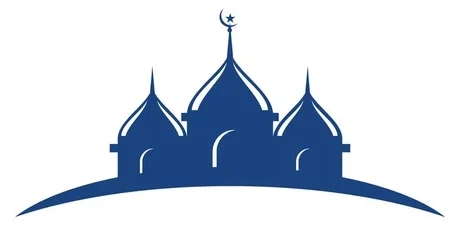Proposal: Establishing Standing Committees for Sustainable Community Engagement
Introduction
The Islamic Society of Tulsa (IST) thrives on the dedication and service of its Shura members, volunteers, and community members. However, as Shura terms are limited to two years, continuity in programs and initiatives can be challenging. To ensure long-term sustainability, consistent growth, and effective engagement, it is imperative to establish standing committees within the mosque.
These committees are designed to support and serve the current Shura, helping carry out programs, projects, and initiatives, while ensuring that Shura remains the final decision-making authority.
Objectives
- Ensure Continuity: Committees maintain momentum on projects regardless of Shura transitions.
- Promote Community Participation: Provide structured opportunities for members to volunteer, lead, and contribute to community development.
- Enhance Organizational Efficiency: Delegate specialized responsibilities to streamline operations and maximize effectiveness.
- Foster Leadership Development: Encourage mentorship and skill-building among youth and adult members.
- Expand Community Outreach: Enable consistent service and collaboration with the broader community.
Proposed Committees and Roles
- Youth Engagement Committee
- Organize activities, educational programs, sports, and service opportunities for youth.
- Implement mentorship programs, Quran study groups, and leadership development initiatives.
- Community Outreach Committee
- Engage with the broader community through interfaith dialogues, service projects, and partnerships.
- Organize clothing drives, health clinics, and other support initiatives.
- Education Committee
- Develop Quran classes, Islamic history lessons, language classes, and life skills workshops.
- Serve all age groups, promoting continuous learning and personal development.
- Social Events Committee
- Plan community dinners, family fun days, cultural celebrations, and religious holiday events.
- Sustainability and Environmental Committee
- Promote eco-friendly practices such as recycling, energy conservation, and sustainable landscaping.
- Technology and Media Committee
- Manage social media, website updates, livestreaming, and digital content creation.
- Health and Wellness Committee
- Promote physical and mental health via fitness classes, mental health awareness, and nutrition workshops.
- Elder Care Committee
- Provide transportation, social visits, and engagement activities for elderly members.
- Cemetery Committee
- Oversee cemetery operations, burial arrangements, and maintenance.
- Facility Management Committee
- Maintain mosque facilities, oversee repairs, and manage event logistics.
- Food Bank Committee
- Organize food drives and distribute resources to those in need.
- Sports Committee
- Organize sports leagues, tournaments, and fitness challenges for all age groups.
- Hospitality Committee
- Welcome newcomers, manage visitor tours, and integrate new members into the community.
Clarifying Role of Committees
It is important to emphasize that these committees are supportive, not authoritative:
- Serve the Current Shura: Committees carry out research, planning, and coordination to assist Shura in making informed decisions.
- Report Back: Committees provide regular updates, recommendations, and progress reports.
- Shura Retains Authority: All final decisions remain with the Shura, ensuring governance and oversight are centralized.
- Enhance Efficiency: By delegating operational responsibilities, Shura can focus on strategic leadership and vision.
Key Point: Committees strengthen Shura’s effectiveness—they are tools for implementation, not a transfer of power.
Benefits
- Continuity Across Terms: Initiatives continue smoothly, independent of Shura election cycles.
- Focused Expertise: Members contribute meaningfully in areas of passion and experience.
- Operational Efficiency: Shura decisions are informed and streamlined.
- Community Engagement: Members feel ownership and are more likely to volunteer and participate.
- Leadership Development: Provides pathways for developing future Shura members and community leaders.
Implementation Plan
- Approval: Present proposal to the Shura for formal adoption.
- Committee Formation: Recruit volunteers and appoint chairs for each committee.
- Guidelines and Charter: Define clear roles, responsibilities, and reporting structures.
- Kickoff: Launch committees with objectives, timelines, and engagement strategies.
- Monitoring & Evaluation: Committees report quarterly to the Shura for oversight and alignment with community goals.
Conclusion
Establishing standing committees is a strategic, forward-thinking approach to ensure IST continues to grow, serve, and strengthen the community across generations. By institutionalizing committees, we safeguard continuity, promote active participation, and build a mosque that operates efficiently—while ensuring that the Shura remains the ultimate decision-making authority.
